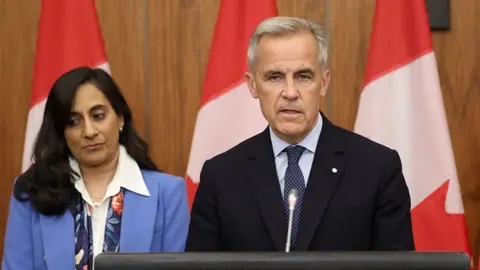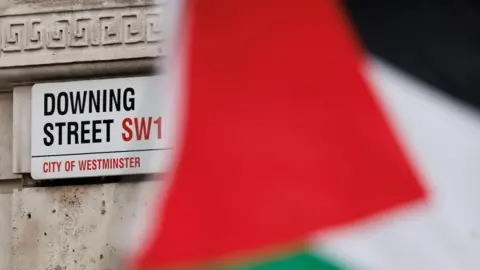Recognising Palestine: What it Means & Impacts
Will the UK's Recognition of Palestine Finally Tip the Scales? A Critical Turning Point?
**Imagine this:** 147 nations already recognize Palestine as a state. Yet, its borders remain undefined, its capital unclaimed, and its future uncertain. Now, the UK is poised to join them, but under a critical condition. Will this bold move finally break the decades-long deadlock, or is it merely a symbolic gesture? Let's dive in.
 A State in Limbo: Understanding Palestine's Complex Reality
Palestine exists in a peculiar state of being. It boasts diplomatic missions and Olympic athletes, yet lacks internationally agreed boundaries, a capital city, and a fully functioning army. Why? Because of the ongoing conflict with Israel, a conflict deeply rooted in history and fraught with political complexities. The Palestinian Authority, established after the 1990s peace agreements, struggles for control in the West Bank, while Gaza faces devastation. The situation is a volatile mix of occupation, political maneuvering, and humanitarian crisis. This makes the UK’s decision particularly significant.
A State in Limbo: Understanding Palestine's Complex Reality
Palestine exists in a peculiar state of being. It boasts diplomatic missions and Olympic athletes, yet lacks internationally agreed boundaries, a capital city, and a fully functioning army. Why? Because of the ongoing conflict with Israel, a conflict deeply rooted in history and fraught with political complexities. The Palestinian Authority, established after the 1990s peace agreements, struggles for control in the West Bank, while Gaza faces devastation. The situation is a volatile mix of occupation, political maneuvering, and humanitarian crisis. This makes the UK’s decision particularly significant.
 The UK's Pivotal Decision: A Calculated Gamble?
Prime Minister Sir Keir Starmer's announcement sent shockwaves through the region: the UK will recognize Palestine in September *unless* Israel meets specific conditions. These include a Gaza ceasefire, reviving the two-state solution, and halting further West Bank annexations. Israeli Prime Minister Benjamin Netanyahu responded with outrage, calling the decision a reward for "Hamas's monstrous terrorism."
The UK's Pivotal Decision: A Calculated Gamble?
Prime Minister Sir Keir Starmer's announcement sent shockwaves through the region: the UK will recognize Palestine in September *unless* Israel meets specific conditions. These include a Gaza ceasefire, reviving the two-state solution, and halting further West Bank annexations. Israeli Prime Minister Benjamin Netanyahu responded with outrage, calling the decision a reward for "Hamas's monstrous terrorism."
 This isn't just a political statement; it's a high-stakes gamble. The UK’s decision is rooted in a long and often painful history. Foreign Secretary David Lammy highlighted Britain's “special burden of responsibility,” citing the 1917 Balfour Declaration, which promised a Jewish homeland in Palestine but, crucially, also protected the rights of existing non-Jewish communities – a promise many feel was broken.
The Balfour Declaration's Lingering Shadow: A Legacy of Unfinished Business
This isn't just a political statement; it's a high-stakes gamble. The UK’s decision is rooted in a long and often painful history. Foreign Secretary David Lammy highlighted Britain's “special burden of responsibility,” citing the 1917 Balfour Declaration, which promised a Jewish homeland in Palestine but, crucially, also protected the rights of existing non-Jewish communities – a promise many feel was broken.
The Balfour Declaration's Lingering Shadow: A Legacy of Unfinished Business
 The Balfour Declaration, a seemingly simple document, cast a long shadow over the region. While it supported a Jewish homeland, it failed to explicitly address Palestinian national rights. This omission, coupled with Britain's subsequent mandate over Palestine, has fuelled decades of conflict. The creation of Israel in 1948 only exacerbated the situation, leaving the establishment of a Palestinian state perpetually elusive.
Global Recognition: A Shifting Landscape
The Balfour Declaration, a seemingly simple document, cast a long shadow over the region. While it supported a Jewish homeland, it failed to explicitly address Palestinian national rights. This omission, coupled with Britain's subsequent mandate over Palestine, has fuelled decades of conflict. The creation of Israel in 1948 only exacerbated the situation, leaving the establishment of a Palestinian state perpetually elusive.
Global Recognition: A Shifting Landscape
 Currently, 147 UN member states recognize Palestine. France is expected to follow suit soon. If the UK proceeds, Palestine would secure the support of four of the five permanent UN Security Council members – leaving only the US, Israel's closest ally, in opposition. This unprecedented level of international support could significantly alter the geopolitical landscape. But will it be enough to bring peace?
Why Now? A Convergence of Crises
Currently, 147 UN member states recognize Palestine. France is expected to follow suit soon. If the UK proceeds, Palestine would secure the support of four of the five permanent UN Security Council members – leaving only the US, Israel's closest ally, in opposition. This unprecedented level of international support could significantly alter the geopolitical landscape. But will it be enough to bring peace?
Why Now? A Convergence of Crises
 The UK's decision isn't impulsive. The ongoing humanitarian disaster in Gaza, widespread anger over Israel's military actions, and a significant shift in British public opinion have all played a role. The pressure on the government has become immense. The question is: Is this a moment of maximum impact, as Sir Keir hopes, or a symbolic act with limited real-world consequences?
The Road Ahead: Uncertainty and Opportunity
Netanyahu has repeatedly ruled out a Palestinian state. Given this, the UK's conditional recognition seems inevitable. But the impact remains uncertain. The UK's ability to influence the situation is limited compared to its position in 1917. Will this bold move finally trigger a genuine peace process, or will it only add another layer of complexity to an already intractable conflict? The answer, for now, remains elusive. What do you think?
The UK's decision isn't impulsive. The ongoing humanitarian disaster in Gaza, widespread anger over Israel's military actions, and a significant shift in British public opinion have all played a role. The pressure on the government has become immense. The question is: Is this a moment of maximum impact, as Sir Keir hopes, or a symbolic act with limited real-world consequences?
The Road Ahead: Uncertainty and Opportunity
Netanyahu has repeatedly ruled out a Palestinian state. Given this, the UK's conditional recognition seems inevitable. But the impact remains uncertain. The UK's ability to influence the situation is limited compared to its position in 1917. Will this bold move finally trigger a genuine peace process, or will it only add another layer of complexity to an already intractable conflict? The answer, for now, remains elusive. What do you think?

Image 1

Image 2

Image 3

Image 4

Image 5

Image 6
Comments
Post a Comment